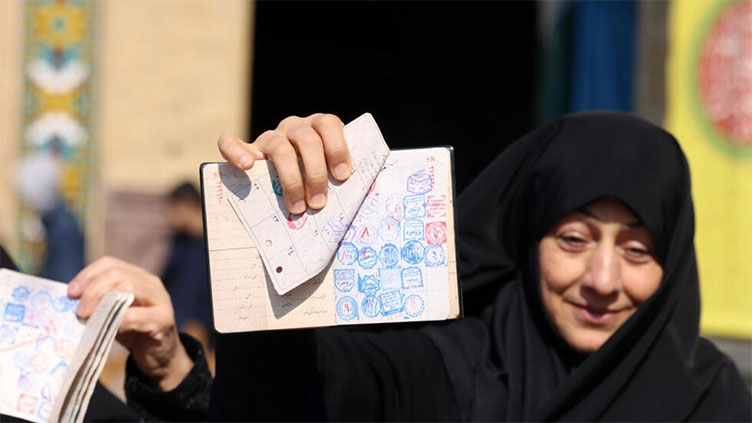Iranians split on whether to vote or not in elections

World
More than 61 million people out of Islamic republic's 85-million population are eligible to vote.
TEHRAN (Iran) (AFP) – As Iranians cast ballots on Friday, many are preoccupied with a pivotal question, not about which candidate to pick, but whether to vote at all.
"It is a religious duty, it is a national duty, and it is the order of the supreme leader," said Afrasiabi, 43, while proudly displaying his ink-stained finger at a polling station south of Tehran.
Afrasiabi was among those who turned out on Friday to pick members of a new parliament and the Assembly of Experts, a body in charge of electing Iran's supreme leader.
More than 61 million people out of the Islamic republic's 85-million population are eligible to vote.
But fears of a low participation rate loomed large after a state TV poll found more than half of respondents were indifferent about the elections.
"I am not voting for two reasons. The first is that I want a lot of changes that are not possible with the current candidates," said 32-year-old Lida.
"Secondly, I have always voted for reformists, but none have been approved."
Jurists in charge of vetting approved 15,200 hopefuls to run for parliament and 144 candidates for the Assembly of Experts. Many moderate and reformist candidates were disqualified.
Iran's present parliament is dominated by conservatives and ultra-conservatives, and observers expect a similar make-up in the new assembly.
Friday's elections are the first since Iran was rocked by mass protests triggered by the September 2022 death in custody of Mahsa Amini.
Amini, a 22-year-old Iranian Kurd, had been arrested for allegedly violating the Islamic republic's strict dress code for women.
'ENEMIES OF IRAN'
Government employee Morteza, 40, says he voted "to try to improve the (political) situation".
"Boycotting the elections will not change anything," he said, referring to calls by some opposition figures and members of the diaspora.
"There is no advantage in not voting, but maybe there is an advantage in participation."
His wife, Akram, said voting was a way of not "letting foreigners interfere in the affairs of our country".
Khamenei had earlier warned that Iran's "enemies want to see if the people are present," adding that otherwise "they will threaten your security in one way or another."
Other voters decried what they referred to as "propaganda" campaigns outside Iran urging people not to cast their ballots.
"Those who do not vote have actually voted, they have voted for the enemies of Iran and the Islamic Republic of Iran," said a 50-year-old Shiite cleric on condition of anonymity.
He cast his ballot at a polling station in central Tehran where dozens of people queued to vote, though in lower numbers compared with previous elections.
Iran's 2020 parliament was elected during the Covid pandemic, with a turnout of 42.57 percent -- the lowest since the 1979 Islamic Revolution.
Pedram, a mathematics teacher living west of Tehran, said authorities in Iran "use votes for propaganda purposes".
They "consider each vote for a candidate and even blank votes as a vote for the entire system", he said.


